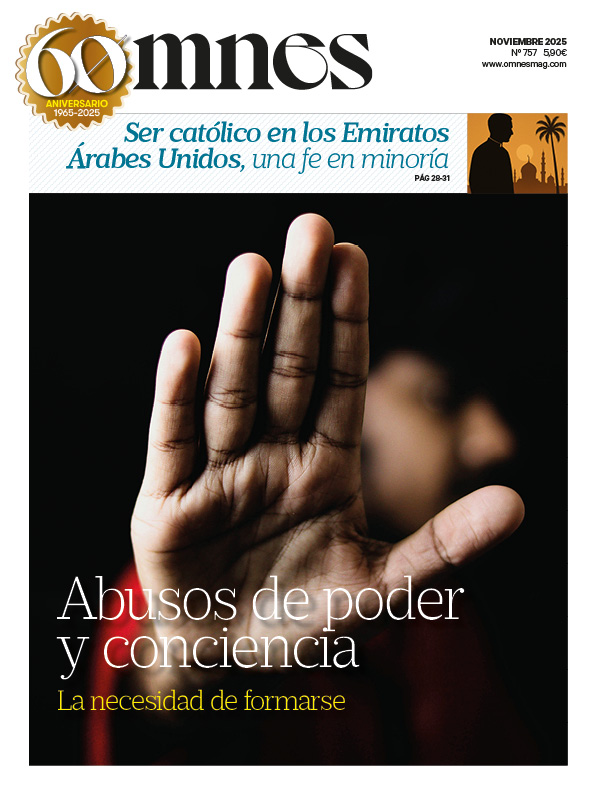The Christian inheritance does not consist of material things that can be wasted but in the meaning of a life that teaches us how to live. To receive an inheritance means to think of it within a history. Inheritance calls for responsibility. We are the continuators of a previous history that must be brought to fulfillment. It is not a matter of repeating it as a dead letter, but of bringing out all the richness it contains, responding to new challenges.
Europe's moral identity presupposes a history, and its mother tongue is Christianity, as Goethe said. It is not a plot of land on which to build, as if nothing existed. Looking only at the present, we ignore the possibilities of the future. We only see what is reprehensible and destructive in our own history, and we are unable to perceive what is great.
At The decline of the modern age, Romano Guardini considers the great change of historical direction that was taking place as an opportunity for the Church. The essential thing is not to change, but to renew, to generate something truly new. To remain in the apparent changes is not to find the true novelty and, so many times, the authentic horizon of the path open to the future is lost. We innovate on the basis of what we are, and our identity is Christian.
Europe is more than its economy. Our present culture boasts of having no faith and demands the exclusion of all reference to what is not purely material and measurable. Today, no revealed religion has any public influence in the European West, and a faith that is kept locked up in privacy is incapable of really directing life. Europe is, above all, a spiritual and cultural concept: a civilization. The key to understanding Europe, like that of any culture or civilization, is religion. In this sense, St. John Paul II, in the Post-Synodal Apostolic Exhortation Ecclesia in Europawhile noting the existence of many worrying signs on our continent, such as the loss of Christian memory and heritage, does not hesitate to give witness to a vibrant call to hope so that Europe will not resign itself to ways of thinking and living that have no future. The Christian faith bases social life on principles drawn from the Gospel, and its imprint can be seen in art, literature, thought and culture.
Pope Francis in Lumen fidei, the first encyclical of his pontificate, invited us to reflect on faith as a light that illumines man's entire existence. It is the light of a founding memory that precedes us and, at the same time, a light that comes from the future and reveals new horizons to us. Faith "sees" in the measure in which it walks, it is the firm rock on which to build life. Faith is not static; from its biblical beginnings it appears as a response to a call that makes us set out on a journey. That is why faith demands a continuous conversion.
We note today that Europe is no longer mainly Christian. However, according to the British historian Toynbee, the changes in civilization that determine a new social paradigm are not promoted by the great masses, but by small "creative" minorities capable of generating a new social fabric. Ratzingerdoes not hesitate to affirm that "the fate of a society always depends on creative minorities"..
A creative minority may be small but it is not sectarian. What distinguishes it from other types of minorities is its capacity to generate culture, ways of life, social practices.
A creative minority generates spaces and times in which something new takes root. It penetrates society and transforms it. It does not mean having the same opinion, thinking and even feeling the same.
What characterizes the creative minority is having received the same gift - a personal relationship - and working hard to build it. They live the same life, they drink from the same source. And this is revealed in the virtues that are generated among its members and that spill outward through practices.
What is essential among men is what we have in common, not what separates us, and faith unites us, it is a common good.
The creative minority does not produce destruction but the renewal of the present. The creative vision discovers the possibility of healing, of a renewal of the world without the need to destroy it; it is leaven, not dynamite. For this reason, Christians cannot live on the defensive, in small ghettos, and retreat in the face of difficulties does not work. Life is always more, it transcends us, it is impossible for us. To dare with this impossible supposes greatness of spirit, magnanimity, courage.
Only the one who is grateful for the contradiction overcomes it, and only the one who is grateful for the gift truly receives it.
The Christian faith can help Europe to regain the best of its heritage and continue to be a place of welcome and growth, not only in material terms but, above all, in terms of humanity.
General Director of the Crusades of Santa Maria








